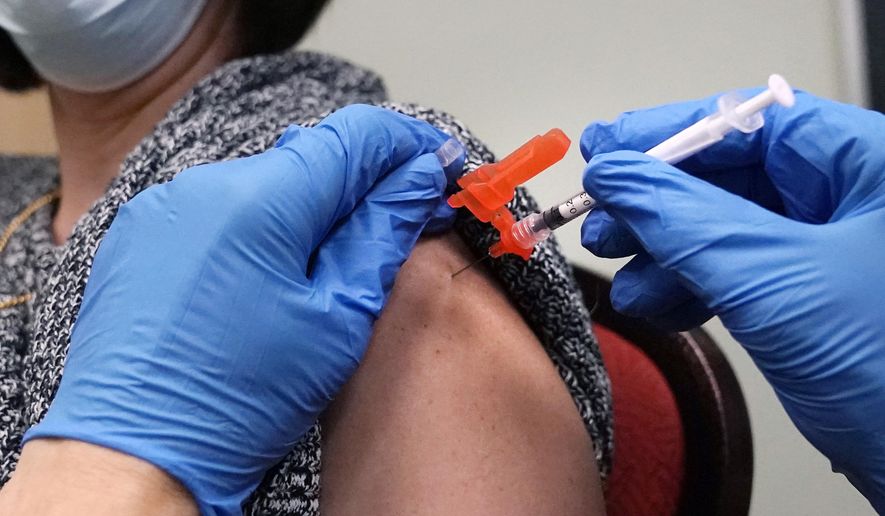COVID-19 vaccination has been linked to a longer menstrual cycle but not longer bleeding in some women, a study released this week found.
Women who received one dose of a COVID-19 vaccine while on their menstrual cycle saw their cycle last longer by nearly one day compared with unvaccinated women, researchers discovered. But the study, funded by the National Institutes of Health and published Wednesday in the Obstetrics & Gynecology journal, found that the increase was not linked with any change in the number of days of bleeding.
The researchers found that menstrual cycles usually vary little from month to month, and the increase observed was “well within the range of normal variability,” NIH said. More research is needed to see how COVID-19 vaccination could affect other characteristics of the menstrual cycle such as pain, mood changes and heaviness of flow, the study authors said.
“It is reassuring that the study found only a small, temporary menstrual change in women,” said Dr. Diana W. Bianchi, director of NIH’s Eunice Kennedy Shriver National Institute of Child Health and Human Development, in a statement Thursday. “These results provide, for the first time, an opportunity to counsel women about what to expect from COVID-19 vaccination so they can plan accordingly.”
Little research has been done on how vaccines for COVID-19 and other diseases could affect the menstrual cycle, she added.
The researchers examined data from a fertility tracking app, Natural Cycles, where users entered data about their temperature and menstrual cycles. They looked at data from three consecutive cycles before vaccination and three after vaccination. For unvaccinated women, the researchers collected data for six consecutive menstrual cycles.
Of the 3,959 people included in the study, 1,556 were unvaccinated while 2,403 were vaccinated.
Most of the vaccinated women had received the Pfizer and Moderna shots. The first dose was linked with a 0.71-day cycle increase in cycle length on average and the second dose with a 0.91-day increase, NIH said, meaning users inoculated over two cycles had an increase of less than a day for each of the vaccination cycles. The study found no changes in the number of menstrual bleeding days for the vaccinated participants.
A smaller group of app users, 358 people, who received two vaccine doses during the same menstrual cycle saw a larger average increase of two days in cycle length. But the change seemed to decrease in the cycles that followed, suggesting the menstrual changes are temporary. If the change in cycle length is less than eight days, it is classified as a normal variation, the study researchers noted, citing the International Federation of Gynecology and Obstetrics.
The study did not find any significant change in cycle length for unvaccinated women.
The NICHD and NIH’s Office of Research on Women’s Health funded the study as part of $1.67 million awarded to examine potential links between COVID-19 vaccination and menstrual changes.
For more information, visit The Washington Times COVID-19 resource page.
• Shen Wu Tan can be reached at stan@washingtontimes.com.




Please read our comment policy before commenting.